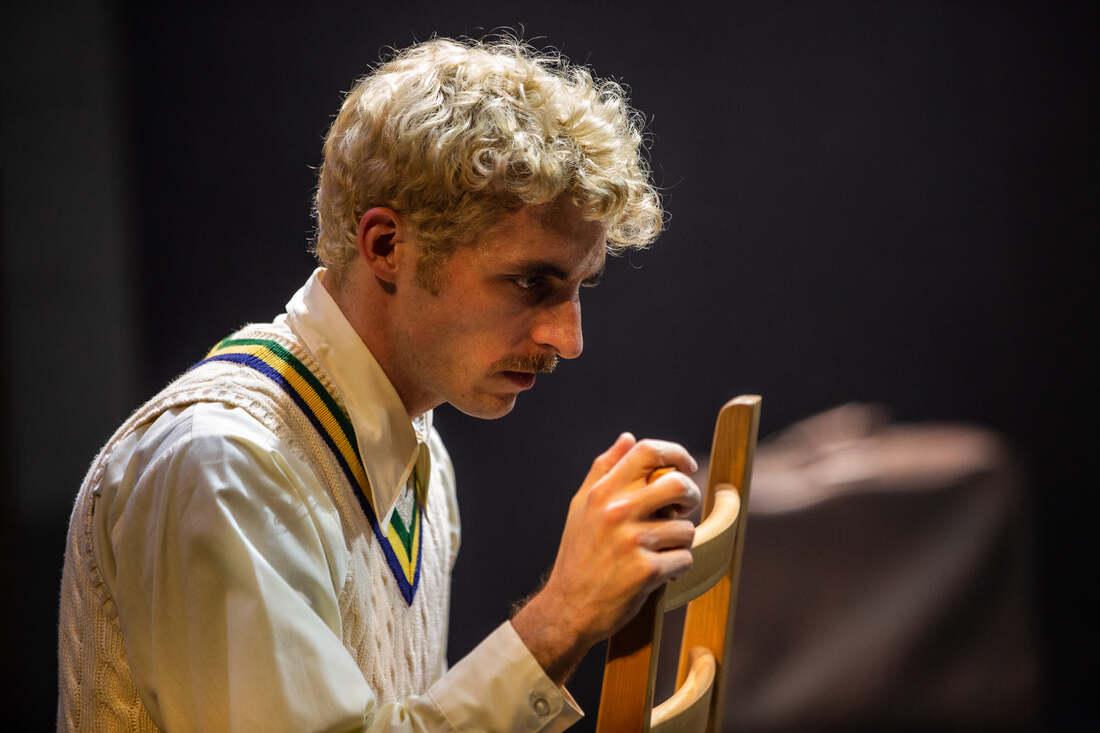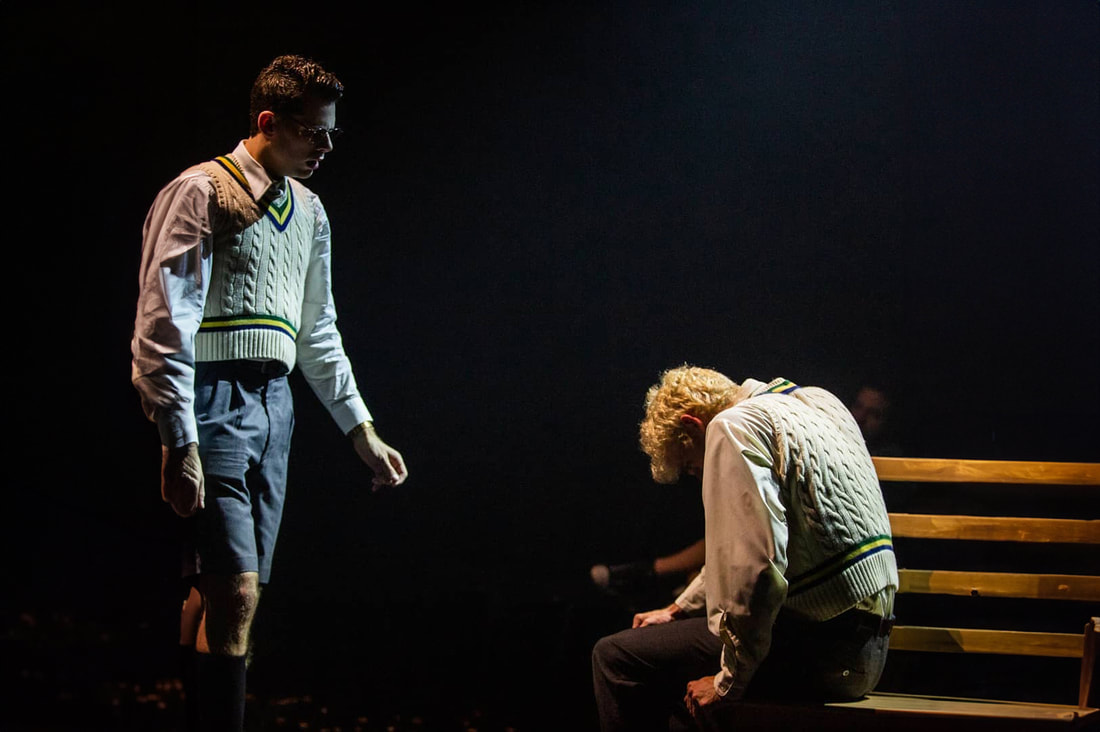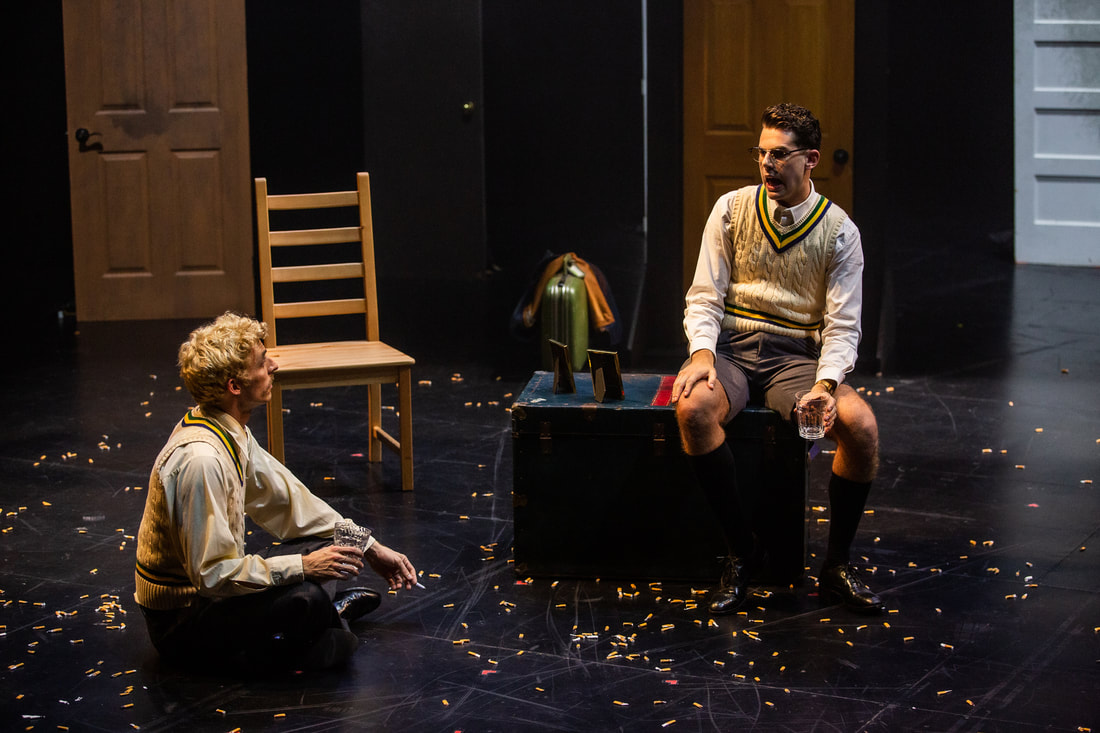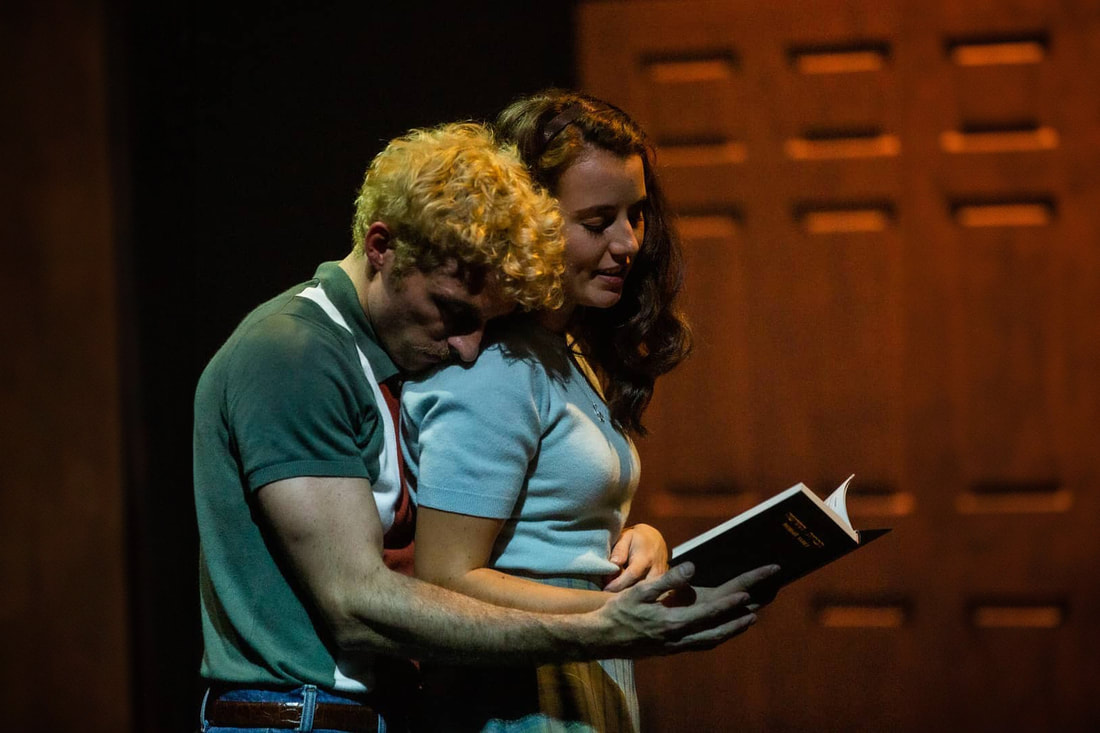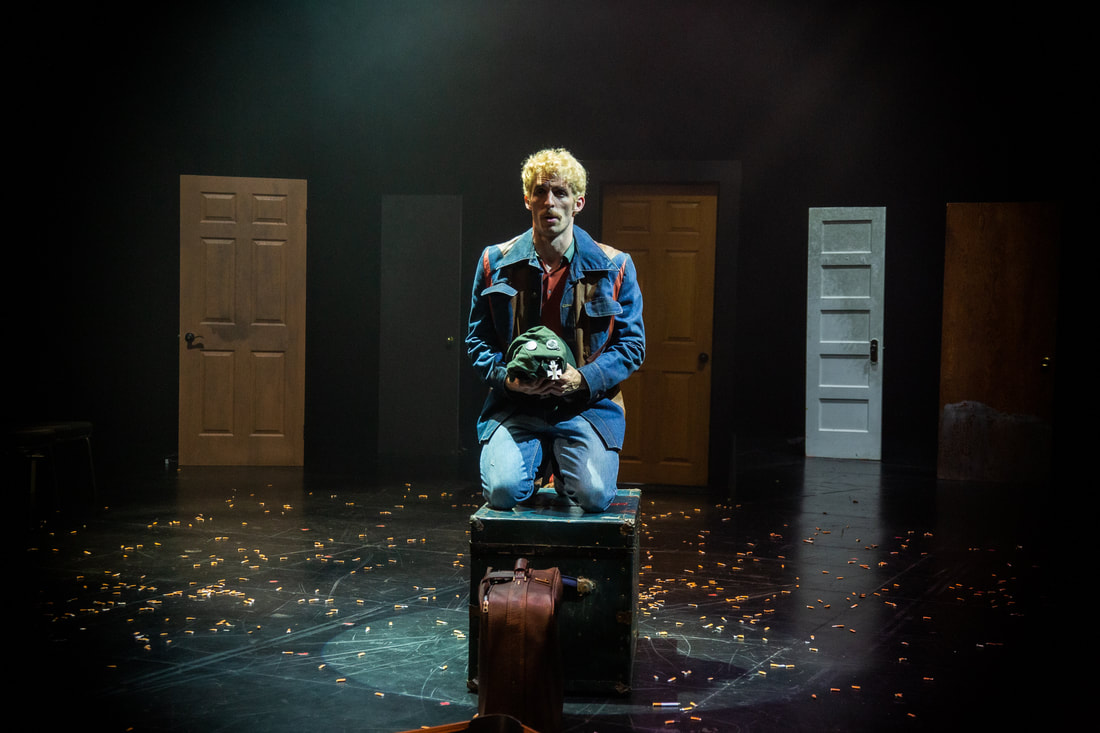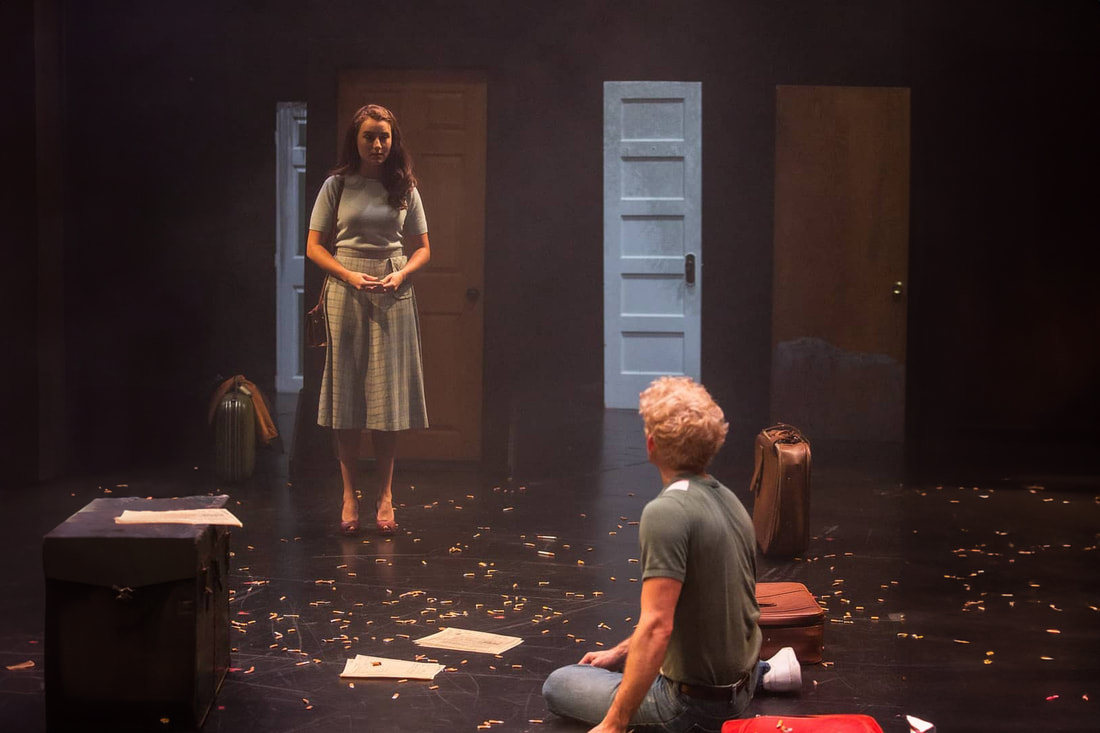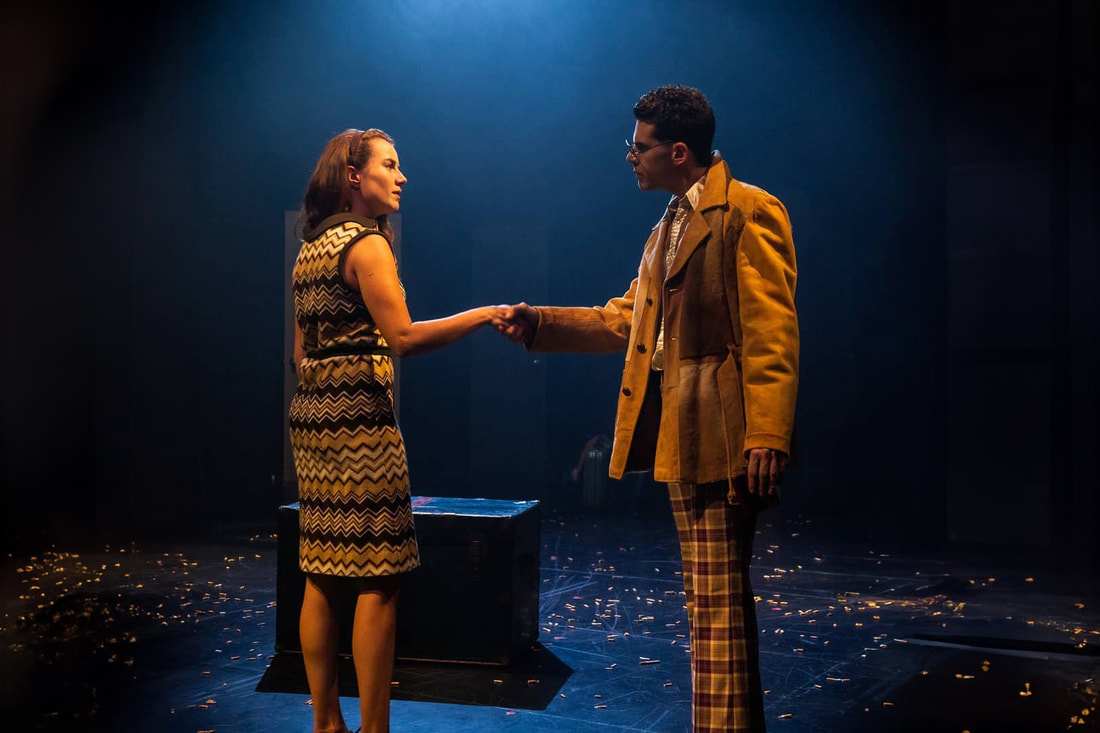East Of Berlin |
Offizielle deutsche Übersetzung des Drei-Personen-Stücks "East Of Berlin" von Hannah Moscovitch im Auftrag von Concord Theatricals.
Aufführungsrechte bei Concord Theatricals
|
Über das Stück |
Als Teenager erfährt Rudi, dass sein Vater Arzt in Auschwitz war. "East Of Berlin", das sich mit Erlösung, Liebe, Schuld und den Sünden des Vaters auseinandersetzt, folgt Rudis emotionaler Veränderung, während er sich mit einer erschreckenden Vergangenheit auseinandersetzt, die nie seine eigene war.
Von Variety Magazine und Theaterkritikern hoch gelobt, ist "East Of Berlin" ein fesselndes Stück, das das Publikum mit einem intensiven Thema konfrontiert, das auf eine Weise erzählt wird, die Humor und Intrigen miteinander verbindet. Text | Concord Theatricals "Moscovitch’s theme is the aftermath of the Holocaust; she provides a new and startling focus by concentrating on the children of those on both sides. [...] With its cast of three, timeless theme and skilled writing, 'East of Berlin' could easily have a life in theaters around the world."
|
Pressestimmen |
"Moscovitch’s theme is the aftermath of the Holocaust; she provides a new and startling focus by concentrating on the children of those on both sides.
Her central figure is Rudi (Brendan Gall), son of a former SS doctor who performed diabolical medical “experiments” on women at Auschwitz and is now living a benign existence as a real estate magnate in Paraguay. The more that teenage Rudi discovers about his father’s past — mostly through Hermann (Paul Dunn), the son of another ex-Nazi — the more horrified he becomes. Rudi deliberately engineers his father’s discovery of him in a homosexual act with Hermann so he has anexcuse to flee to Europe. A decade later, while living in Germany and doing research on his father’s crimes, Rudi meets Sarah (Diana Donnelly), the Jewish daughter of a holocaust survivor. They fall into a strange, intense relationship made up of equal parts guilt, loathing and desire. The astonishing thing about Moscovitch’s play is how funny it is. She’s not afraid to plunge right through areas that others might consider poor taste in order to come out the other side in search of a deeper truth. And the way she also keeps an undercurrent of eroticism bubbling beneath the play is both disquieting and stimulating. In the end, the writer offers no answers to the questions of guilt and retribution that haunt children from their parents’ pasts, but she poses the problems in a fascinating way that proves truly thought-provoking. [...] With its cast of three, timeless theme and skilled writing, “East of Berlin” could easily have a life in theaters around the world." Variety "[Moscovitch's] examination of the relationship between the children of victims of the Holocaust and the children of those who victimized them is astonishingly complex, as well as sexy, funny and suspenseful."
|
Pressestimmen |
"Anyone harbouring doubts as to whether one-act play wonder Hannah Moscovitch (The Russian Play, Essay) could go the distance can lay them to rest after seeing East of Berlin, which began a revival run at the Tarragon Theatre Thursday night.
The SummerWorks veteran's play is just over 90 minutes, but it packs more of a punch than many three-hour epics I've sat through. [...] If I told you that Moscovitch was writing about the children of Nazis and how they cope with their parents' heinous legacy, you might think that you've heard all this before. But you'd be wrong. Her examination of the relationship between the children of victims of the Holocaust and the children of those who victimized them is astonishingly complex, as well as sexy, funny and suspenseful. Let the play have its surprises. All you need to know is that Rudi, child of an SS officer who committed atrocities at Auschwitz, is working his way through his past, first from the safe distance of Paraguay and later from the belly of the beast in Germany. We meet his childhood friend Hermann and the young Jewish woman, Sarah, through whom he seeks redemption. There are no easy answers in this script, and those who like their message plays to come with Ikea-like assembly instructions will find East of Berlin tough to take. But those looking for theatre that stretches your heart and your brain will be well rewarded." Toronto Star "Complex blend of drama and humour."
|
Pressestimmen |
"Hannah Moscovitch’s play uses the genocide as an opportunity to explore the idea of legacy and the generational effects of evil, but it is also specific in its examination of the civic complicity that enabled crimes of such magnitude to be condoned by the masses.
Moscovitch creates a complex psychological portrait in the character of Rudi. He cannot forgive his father for his past, yet he cannot forget how good a childhood he had. He refuses his parents' financial support, yet lives off monies provided by the Nazi network Odessa. He seeks redemption in a relationship with a Jew, yet he does not reveal the full extent of his history." The Irish Times "Moscovitch is primarily interested in the guilt experienced by Rudi. Why, she wonders, do we blame offspring for the crimes of their parents? Rudi — poignantly and pathetically — deliberately becomes romantically involved with a Jewish woman in order to redeem himself, to cleanse himself of his father’s sins. Sarah responds with violent distaste upon learning the truth about his father’s past. And yet Rudi, while far from perfect, truly is an innocent — he committed no crime.
The subject matter is, to put it mildly, heavy. Moscovitch leavens the load with outrageous black humour." Times Colonist |
